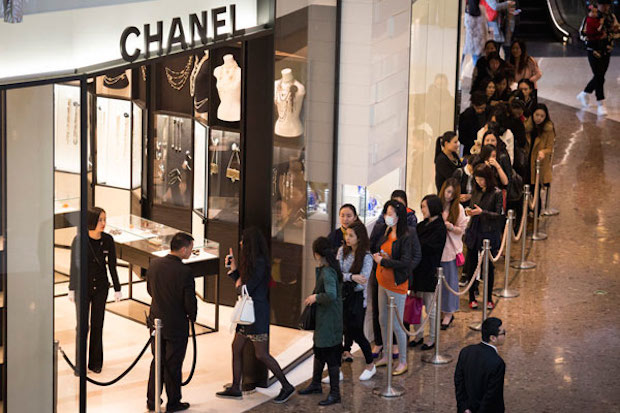In my earlier post ‘Status (luxury) consumption among British and Indian customers’, I discussed the theoretical implications relating to one of my recently published study in the International Marketing Review. In this post, I am going to focus on the managerial implications.
- Image by minxlj via Flickr
To briefly summarise the study, it focused on three antecedents to status consumption namely: (a) socio-psychological antecedents; (b) brand antecedents and (c) situational antecedents.
Customers buy and use status products/brands to assist them in achieving a particular goal and project a message about their self. The findings of the study show how and why customers engage with status products in different countries and cultures. The findings also demonstrate that several factors which were important predictors of status among the British customers were not significant predictors for the Indians, and vice versa. These findings have noteworthy implications for brand managers in developing a pertinent strategic action plan to engage customers with their brands in both developing markets and developed markets.
The findings suggest that creating an entirely standardized marketing strategy for status products/brands will prove ineffective due to the significant differences among customers between developed and developing markets. There is certainly a prospect to standardize some features of the marketing strategy across countries for status products/brands. However, the differences in consumption and the overall engagement also suggest the need for adaptation. For example, ostentation provides an opportunity to standardization strategic message across markets. However, adaptation is required when associating social gains, esteem indication, brand related features and the choice of situation for the strategic action plan.
Marketing status brands to British customers
For the British market, managers should focus on building a strategic campaign which demonstrates the brand as a way to ‘gain popularity’ and be ‘noticed by others’. Associating the brand with relevant celebrities who are seen as successful and high achievers could be of great help in the British market too. The brand should also focus strongly on developing a symbolism which is familiar and positively in congruence with the customers. To generate positive feelings towards the status brands, managers will have to be very creative in the British markets as the consumers are exposed to such brands for long and so are quite aware of their symbolic meaning. Several extrinsic cues in this regard can play an important role. For example, country of origin can play a substantial role in this regard. In their communication mix many status brands employ occasion specific consumption for the British market. However, the results of this study suggest that such campaigns will have little effect in the British market. Therefore, managers should look for aforementioned suggestions to improve their standing in the market.
Marketing status brands to Indian customers
To market their status brands to Indian consumers, managers should position their brand solely on ostentation. Moreover, the strategic campaign should also focus on the occasion (situation) specificity. If managers can develop a brand message around occasions and ostentatious behaviour, they will have a higher chance of getting success in the Indian market. The branding efforts will not yield as effective a response in the Indian market in comparison to the British market. Therefore, managers will have to find ingenious ways to engage the Indian customers. For example, in the alcoholic beverage market, major international players such as Absolut and Brown-Forman are associating with vibrant art and music scene. On the other hand, big players like Diageo and United Breweries are focusing on the upwardly mobile population in the metros and mini metros of India by opening lounges. Diageo even plans to open Johnnie Walker Club & Lounge and Smirnoff Cafes in metros such as Mumbai, Delhi and Bangalore and wishes to expand to 10 other cities in near future.
Thus, challenge for managers lies in creating a glocalised strategic action plan which incorporates a balanced mix of standardized as well as customized response to the market reality. This study provides actionable results for managers involved in marketing status products in developing the strategic action plan.
If you wish to read more about it have a look at the original paper available at:
Status Consumption in Cross-national Context: Socio-psychological, Brand and Situational Antecedents


![Reblog this post [with Zemanta]](http://img.zemanta.com/reblog_e.png?x-id=2cbde429-428a-43ef-9c68-852c51df7e81)





